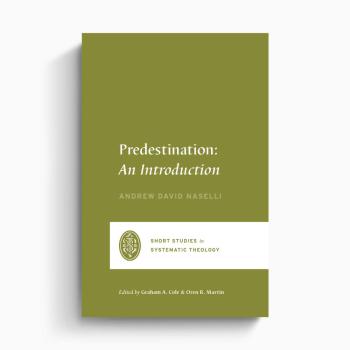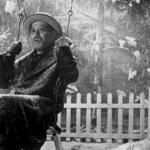Review of The Last Lion: Winston Spencer Churchill, Volume Three: Defender of the Realm, 1940-1965, by William Manchester and Paul Reid
The three volumes of William Manchester and Paul Reid’s biography of Winston Churchill run to several thousand pages. The trilogy defines words like “magisterial” and “epic,” encompassing the two greatest wars in history, the decline and fall of the British Empire, the dawn of the Cold War, the birth of the airplane, submarine, tank, and nuclear bomb, and much else besides. The books give a vivid picture of the twilight of Victoriana and the dawn of the 20th century: the bloodiest century in human history.
As such, they are not really biographies of Winston Churchill. Churchill is the center of the storm, but the storm is too big. Especially in the last volume we lose sight of our protagonist for long stretches of text while the authors strain to give us some appreciation for the context of world catastrophe in which Churchill did his thing. Volume III is, essentially, a history of World War II, as seen from London.
That isn’t to denigrate the book. This is a riveting text, and may be the only possible way to approach Churchill’s life in these years. He was big, and the times were bigger. Churchill apparently did not keep a personal diary and was no introvert. He did not have a have a habit of examining himself and sharing the resulting discoveries with others. We do not know what it felt like to be Winston Churchill, and never will.
Instead, the only way to do justice to Winston’s massive life is to recount his times and narrate his role in it. Volume I (reviewed here) told the story of his life up until he left his party over differences in colonial policy in the 1930s. Volume II casts Churchill as Cassandra, doomed to failure in his lonely struggle to warn Britain, Europe, and the world of the impending cataclysm. Volume III picks up when he assumes the Prime Ministership, in May 1940.
One of the biggest lessons from this saga is that human decisions matter. Prime Minister Neville Chamberlain was an educated man with practical business experience who believed he was doing the right thing when he attempted to appease Adolf Hitler. He was simply wrong: by agreeing to Hitler’s territorial demands, he only encouraged Hitler to make more of them. Because of Chamberlain’s error, World War II happened. Because of his mistaken beliefs, tens of millions of people died.
Perhaps a war with Germany would have happened in any case; but Chamberlain ensured that when it came, Britain was almost entirely unprepared, would come within weeks of losing, and would have to endure far longer than otherwise. These things were not inevitable, and not everyone was blind to them. Other people disagreed with Chamberlain, and said so, and they lost the debate until 1940. Churchill was foremost among them.
We all know the story (or we should): Churchill assumed the post as the King’s first minister in Britain’s hour of maximum danger. Hitler invaded France the very day Churchill took office. Everyone assumed France would hold out for months. It surrendered in six weeks. Neither the United States nor the Soviet Union were in the war: Britain was literally the only country in the world standing against Hitler that hadn’t already been conquered.
What’s interesting is how little the United Kingdom did, and how poorly it did it, for the first year or two of Churchill’s premiership. Churchill tried to hold the line against Germany in north Africa, Italy in the Mediterranean, and Japan in the Pacific. Until early 1942, he failed at all three.
But Churchill’s leadership must be judged by other measures. He showed the world that Britain would fight, which was not obvious. Other countries (Sweden, Ireland, Switzerland, Spain) didn’t and some British leaders believed they should follow suit. Fascism was on the right side of history, and Hitler was its clearest exponent. Better get with the program.
Without Churchill’s pugnacious refusal, the United States would have responded to Pearl Harbor by going to war only against Japan–which is exactly what many Americans wanted to do. When you think about it, it is rather odd that the United States responded to the Japanese attack by fighting a global war against Germany. Hitler played a role in linking the conflicts by declaring war on the United States in solidarity with his Japanese ally, but the United States might very well have simply ignored him and spent its full might on Japan alone while letting Britain and Russia fight in Europe.
Churchill played a major role in making the conflicts truly one. He reached out early and often to President Roosevelt (who does not come off well in this biography), paving the way for early talks between U.S. and UK military officials in early 1942. They forged the alliance that brought America to Europe and won the war.
He was able to do so because one of Churchill’s most important qualities as a leader was his ability to bring the human touch into matters of high statescraft. The man was the extrovert of all extroverts. He spent his entire waking life either taking or writing. He lived as if all the world’s eyes were constantly on him, and its ears attuned to him. He existed in relation to people. That’s not to say he was especially kind or humble (he was not), but he knew the importance of the human touch in bringing together people who were useful to him and his purposes.
Another aspect to his human touch was his literary sensibility. Churchill, who won the Nobel Prize for Literature, produced shelves of written work. His war speeches are among the greatest ever given. His words rallied Britain, persuaded America, and articulated the meaning of the war. Crafting words of precision, beauty, and power is a very human undertaking, one that few other statesmen of his day, and none of ours, have proven capable.
Churchill was more than a pretty voice. He also did his homework. His warnings in the 1930s were not mere demagoguery. He read huge quantities of intelligence reports about Germany’s rearmament. He was persuasive because he knew what he was talking about. Later, in 1940, as Britain braced for invasion, Churchill exuded defiance. This was no mere preening. Churchill did the numbers. He counted up how many German troops would be needed to invade Britain, how many German ships would be needed to transport them, and concluded the Reich simply couldn’t pull it off. The Royal Navy still had command of the waves, and no invasion was plausible until the Nazis commanded the air so they could sink more boats. Churchill’s detailed knowledge, developed from his exhaustive reading and punishing work schedule, was the foundation of his persuasive optimism.
I wonder if the American political system is capable of electing a Churchill. There is something more flexible and forgiving about British politics. Their elections happen at irregular intervals; there is more spontaneity in the system. Parties can lose elections but individual losers still retain their seats. Losing an election doesn’t kill a career. There is much that went into Churchill’s success that was uniquely British.
Churchill wasn’t perfect. The firebombing of German cities is the most troublesome aspect of the Allied campaign against Germany; to Churchill’s credit, he at least seems to have had some doubts as he signed the orders for entire cities to be bombed to rubble. His old-school imperialism may be (just) forgivable, but not his racism, which with the former was too often entwined. Churchill was also irreligious. The earlier volumes dance around the issue, but the last volume of this biography makes clear that Churchill believed in nothing beyond this life. Alas.
Despite his faults, Churchill was one of the greatest men of his, or any, age. All we could come up with was a Roosevelt. Roosevelt apparently said once that Churchill had a hundred ideas a day, and one or two were even pretty good. Churchill, upon hearing it, replied that was rich coming from a man who never had any ideas at all.












